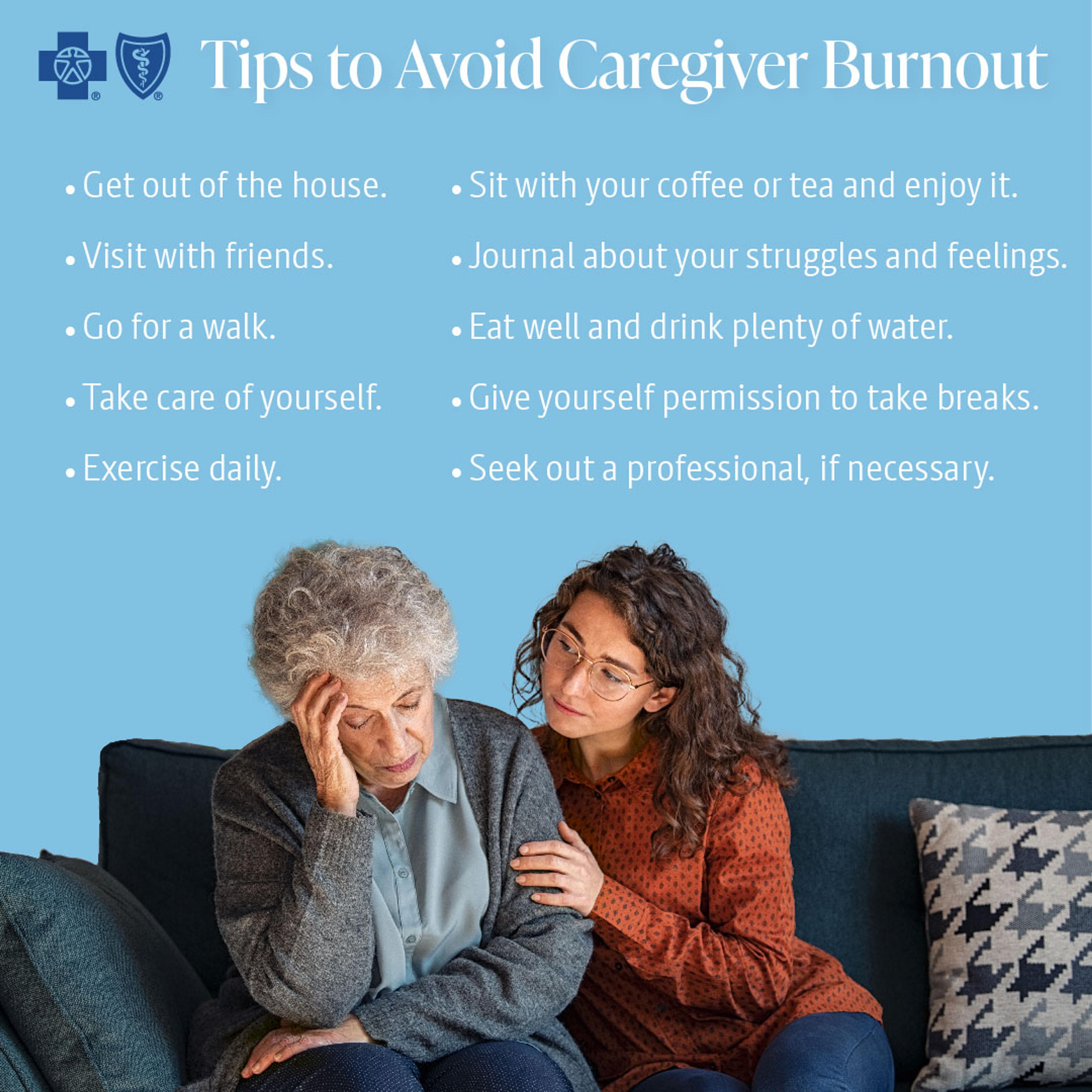Tips for Avoiding Caregiver Burnout
Shandra Martinez
| 2 min read

More than one in five people are unpaid family caregivers, according to a study commissioned by AARP. While many people volunteer to take care of a loved one, the work required can be exhausting.
Caregiver burnout is a feeling of emotional, physical and mental exhaustion, like you have nothing left to give. It may trigger depersonalization or an increasing detachment from the caregiving role — and sometimes from the person you’re caring for.

To prevent burnout, don’t be afraid to ask for help. Here are some additional tips:
- Give yourself permission to take breaks.
- Get out of the house.
- Visit with friends.
- Go for a walk.
- Take care of yourself.
- Don’t skip your own doctor appointments because you’re too busy.
- Exercise daily.
- Eat well and drink plenty of water.
- Get enough quality sleep and try to maintain a consistent sleep schedule.
- Schedule 15 minutes a day in you day and use the time just for you.
- Sit with your coffee or tea and enjoy it.
- Journal about your struggles and feelings.
- Meditate, pray, stretch or do whatever you want to do.
- Make a list of your daily activities and tasks. Delegate, automate and eliminate what you can.
- Seek out local or virtual support groups to communicate with others who are in similar roles.
- Develop positive coping skills and actively use them.
- Discuss your concerns with someone you trust.
- Seek out a professional, if necessary.
Learn more about the importance of self-care for caregivers in this Blue Cross Virtual Well-Being℠webinar, Dr. Dayna LePlatte Discusses Caregiver Self-care Tips to Avoid Burnout. You can also sign up for future employer- or individual-focused webinars and guided meditations here.
Photo credit: Getty Images





